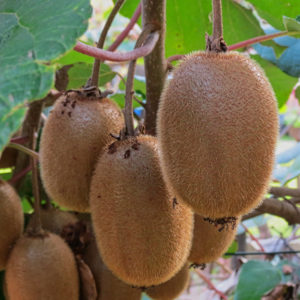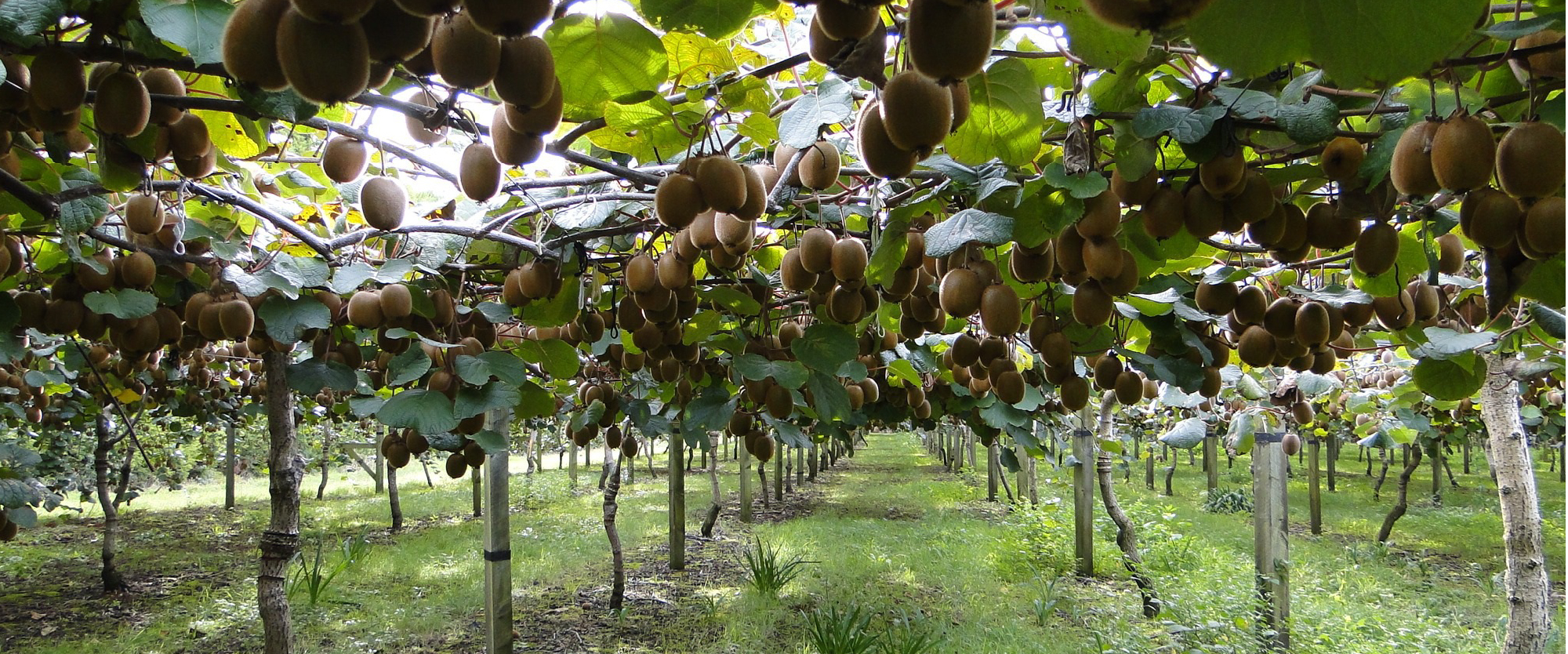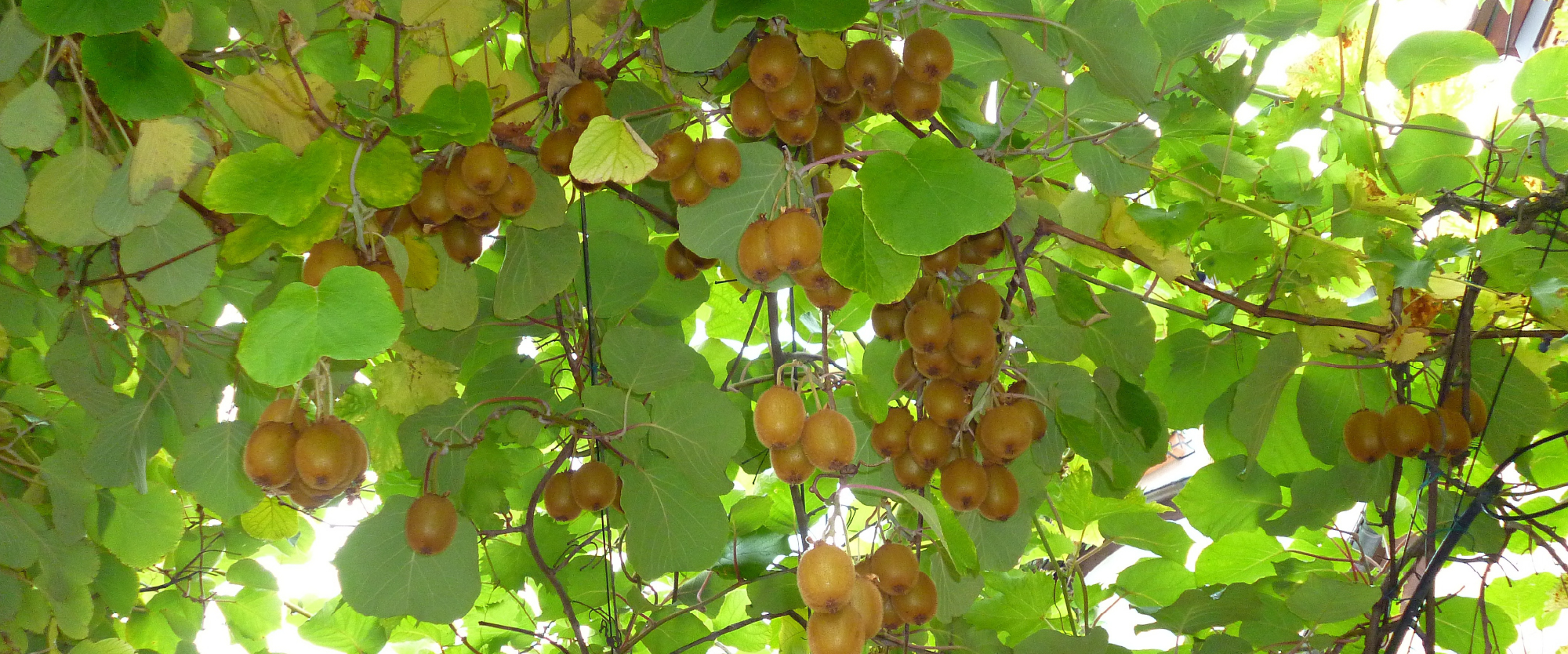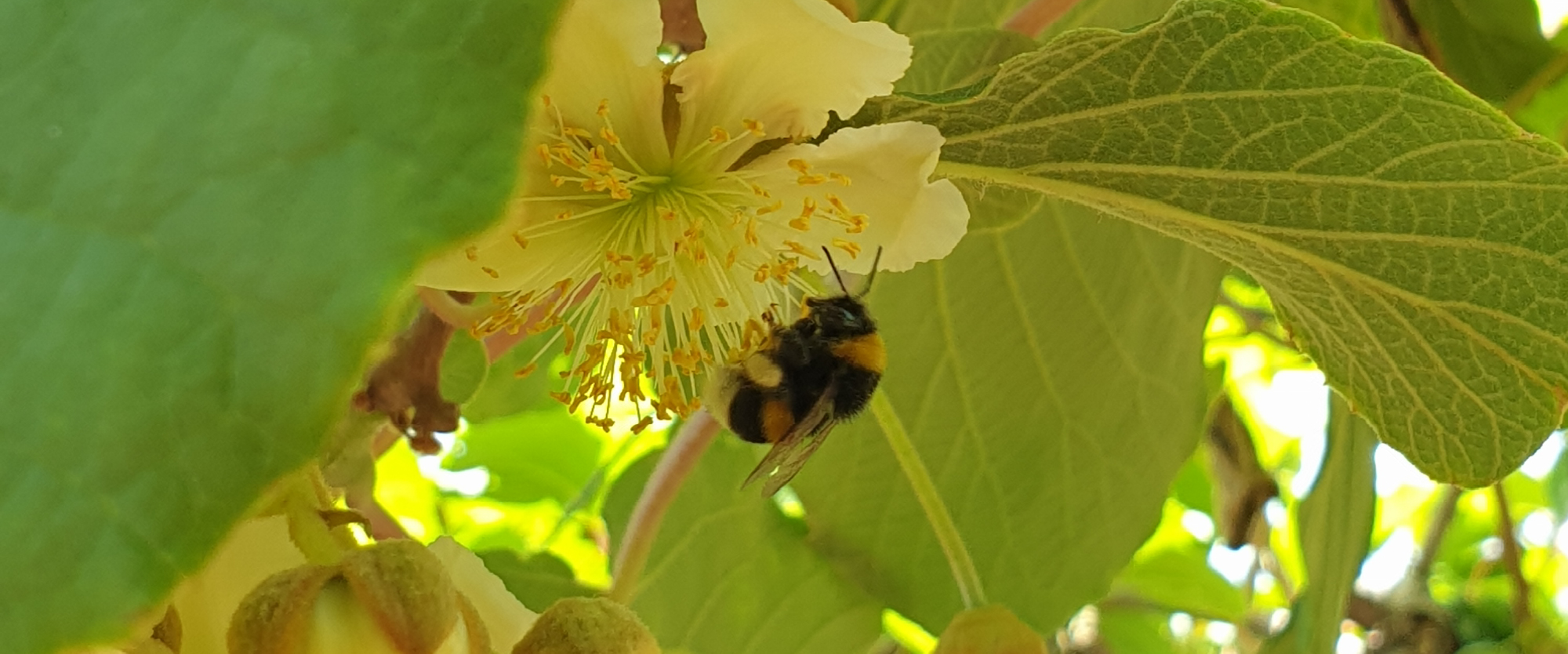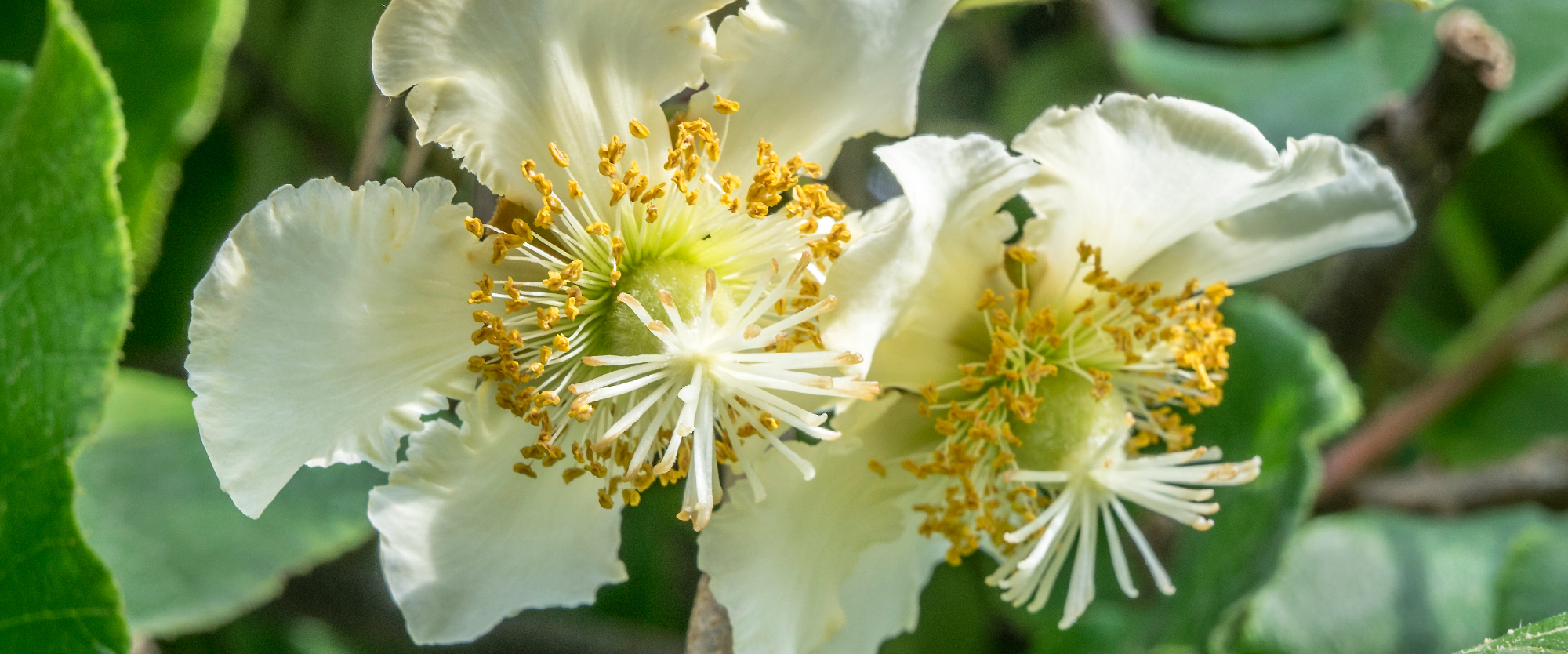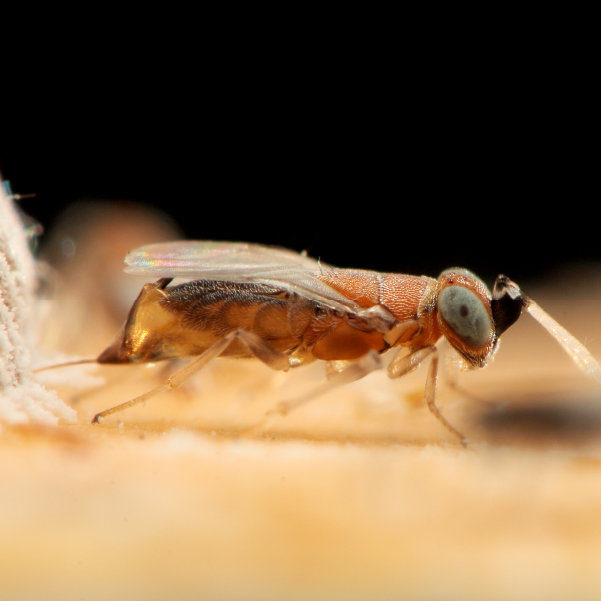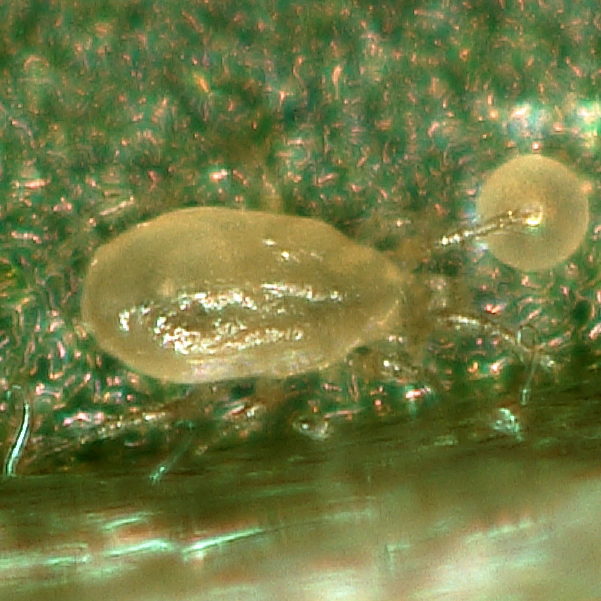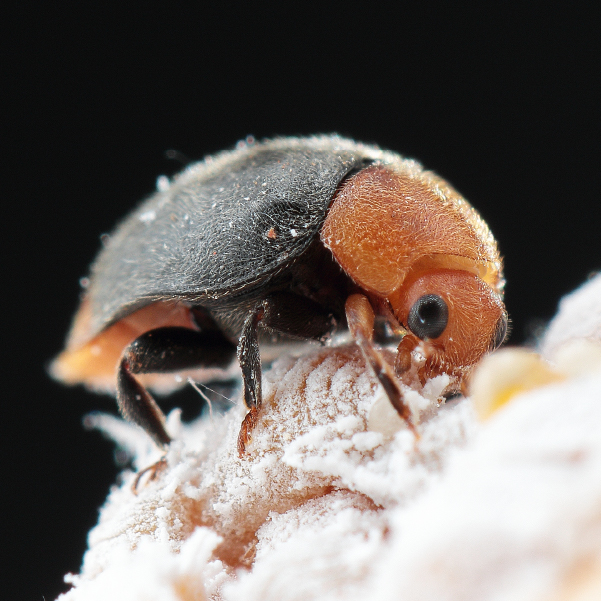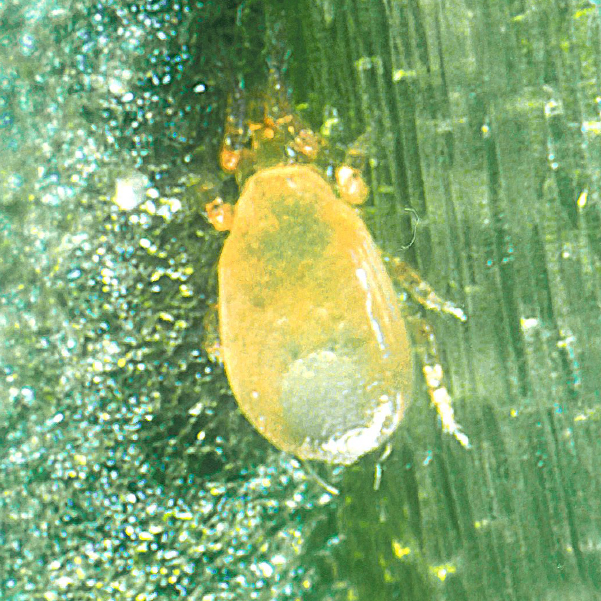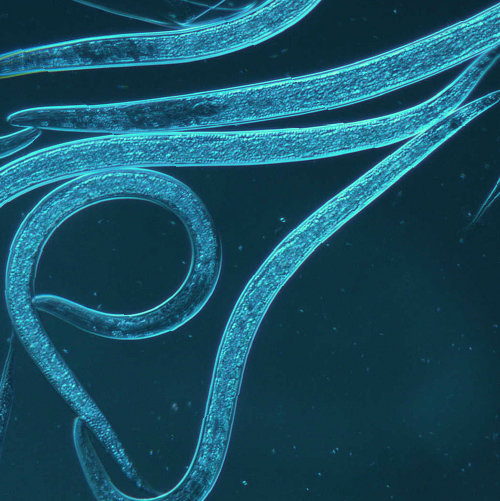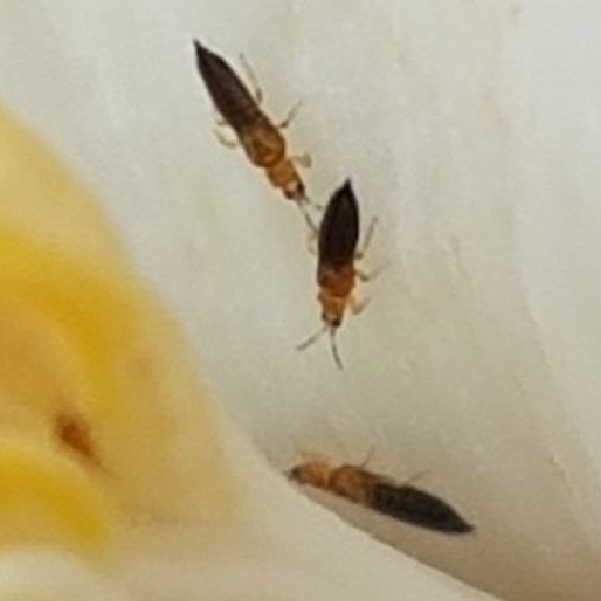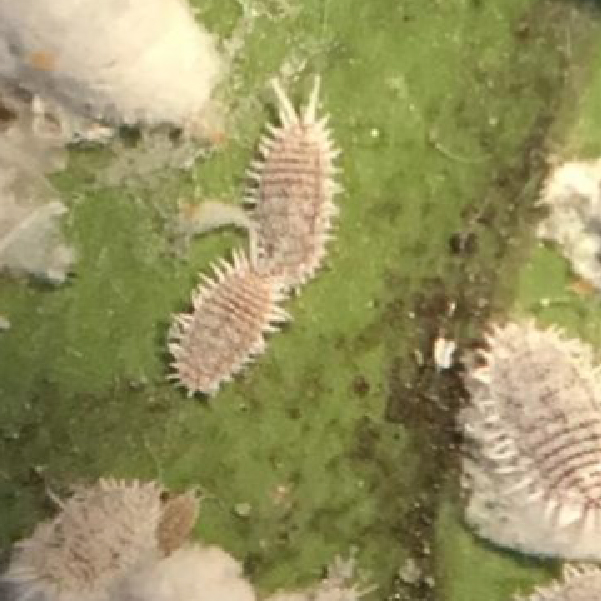Kiwi is a deciduous fruit tree natives to Southeast Asia. Its fruit is oval and can be greenish brown or copper colored, covered with fuzz while the pulp is either green or yellow with numerous back seeds.
Pollination
Kiwi flowers are large and creamy-white. The kiwi is a dioecious plant, that is, it has male and female flowers on separate plants. In these cases, the transfer of pollen through pollinating insects is essential to carry out a successful cross-pollination. To produce quality fruits, each flower requires a large amount of pollen grains on its stigmas. The flowers do not have much nectar, which is why they are not very attractive to honey bees. Bumblebees are a great solution to this problem since they do not transfer information regarding the attractiveness of the food source to each other. Bumblebees do not store honey like the honey bee, so they must forage daily. They can perform in cold, cloudy and rainy conditions and work very fast (4 times faster than the honey bee), which means that they visit many more flowers at any given time. They are very large (twice the size of a honey bee) and fuzzier, so every visit to the flower causes effective pollination. Additionally, bumblebees can do “buzz” pollination which is absolutely essential in certain crops.
Pests and diseases
BioBee’s approach to IPM is multifaceted, employing multiple strategies to achieve the optimal result. In addition to the gradual release of host-specific beneficial insects, BioBee recommends that growers use selective “soft” chemical pesticides. This strategy helps growers transition from using “harsh” chemicals, which are dangerous to the human population and the environment and have long-lasting residues. It has also been proven to increase marketable crop yield, and as a result, increases profits.
With BioBee, growers meet the strict legislation in Europe, the U.S., Japan and other countries regarding MRLs (maximum residue levels), as well as GAP (Good Agricultural Practices) requirements, including GLOBALGAP (a voluntary standard required by many supermarket chains in Europe). Produce grown with BioBee requires minimal pesticide use.
BioBee’s staff is extensively trained in the IPM method, and works directly with growers to produce a tailor-made IPM program to meet his or her individual needs. This customized program is successfully implemented with the ongoing oversight and guidance of BioBee’s staff.
